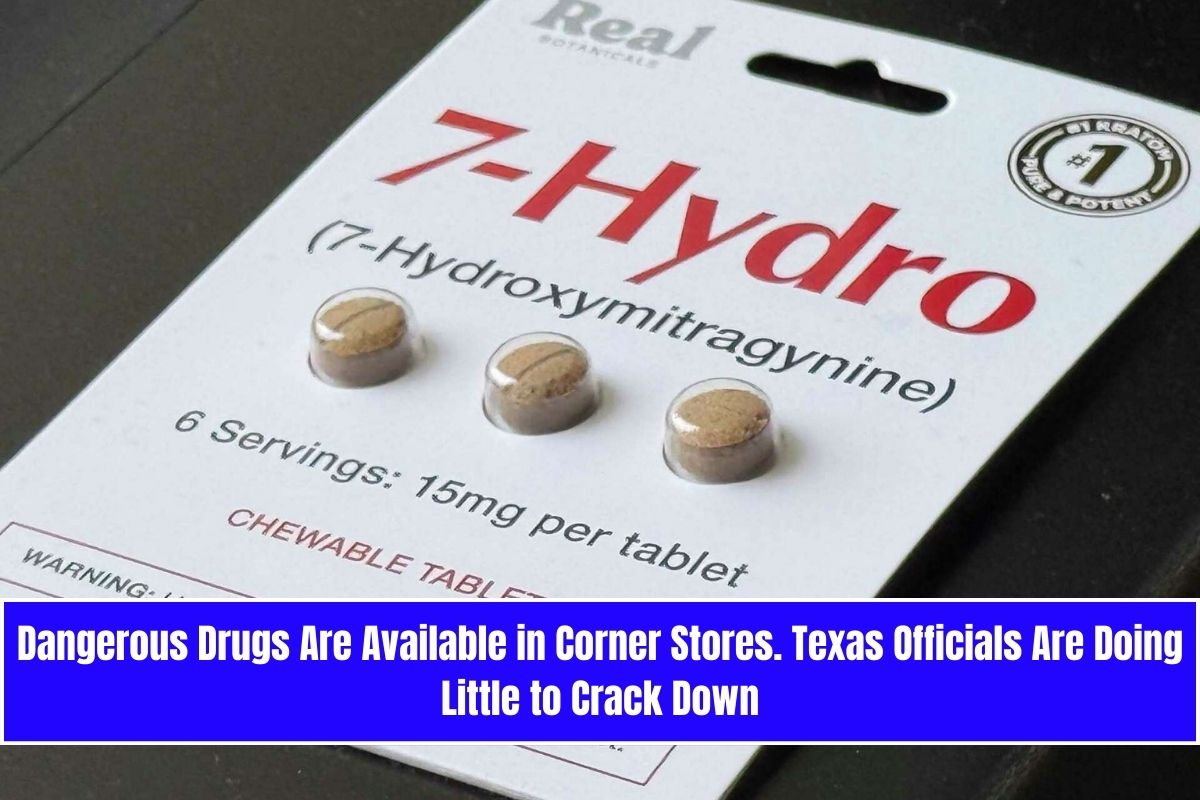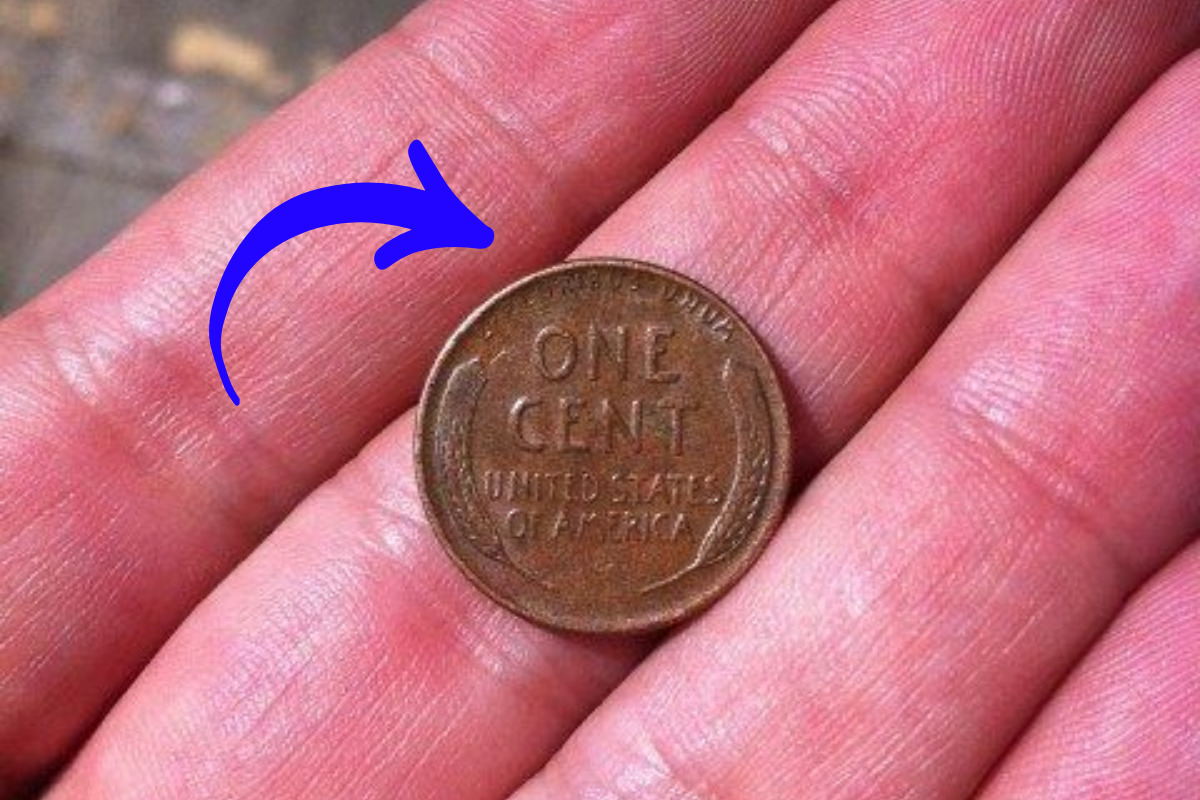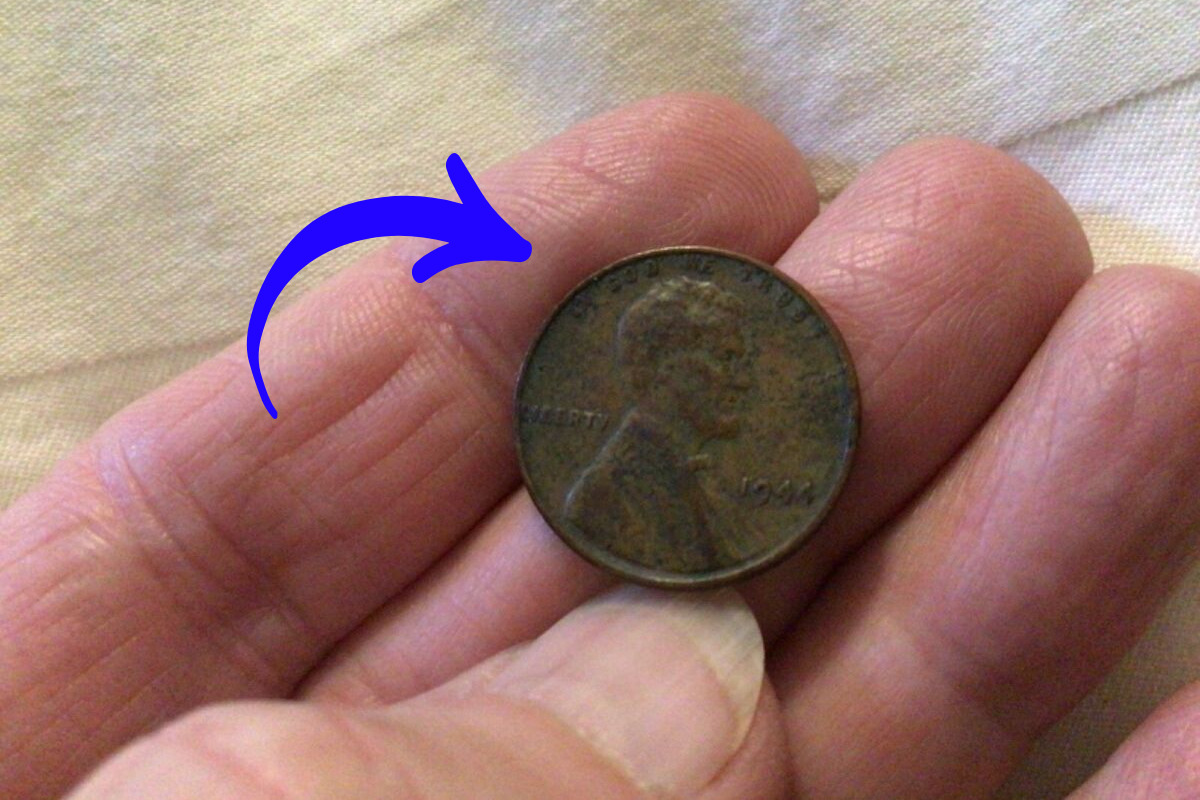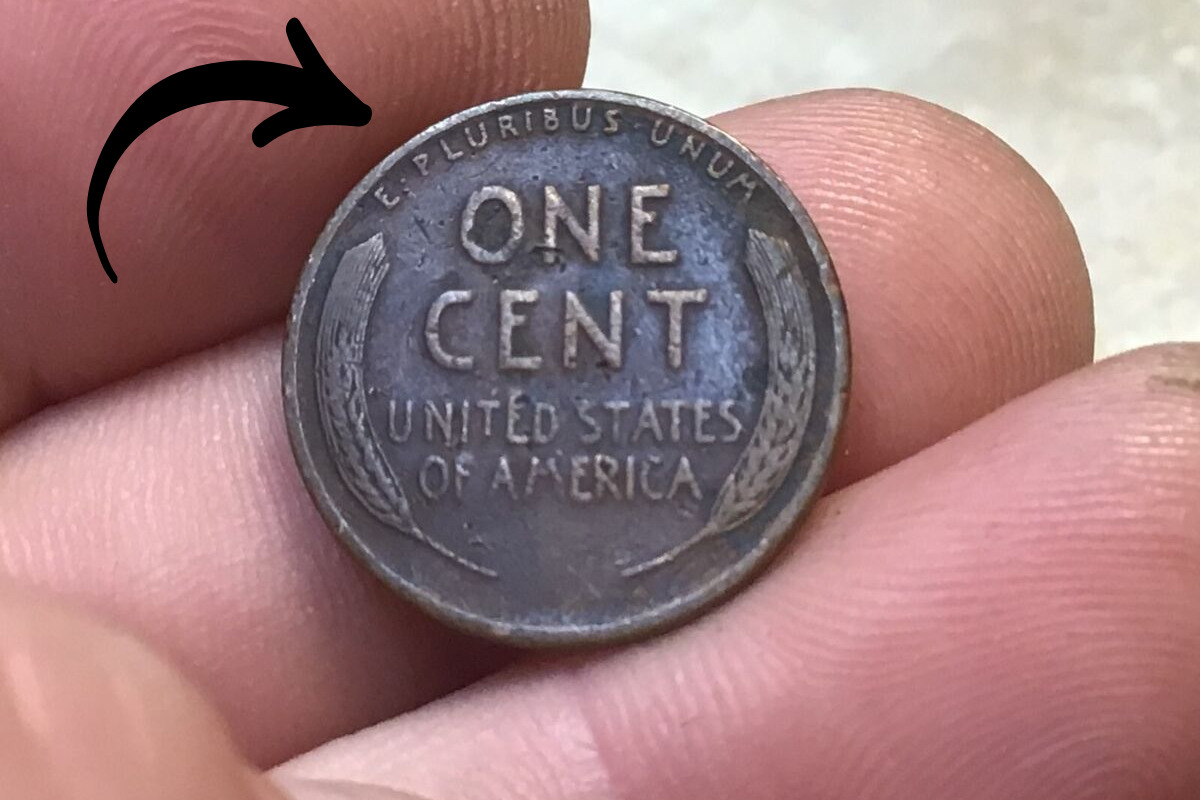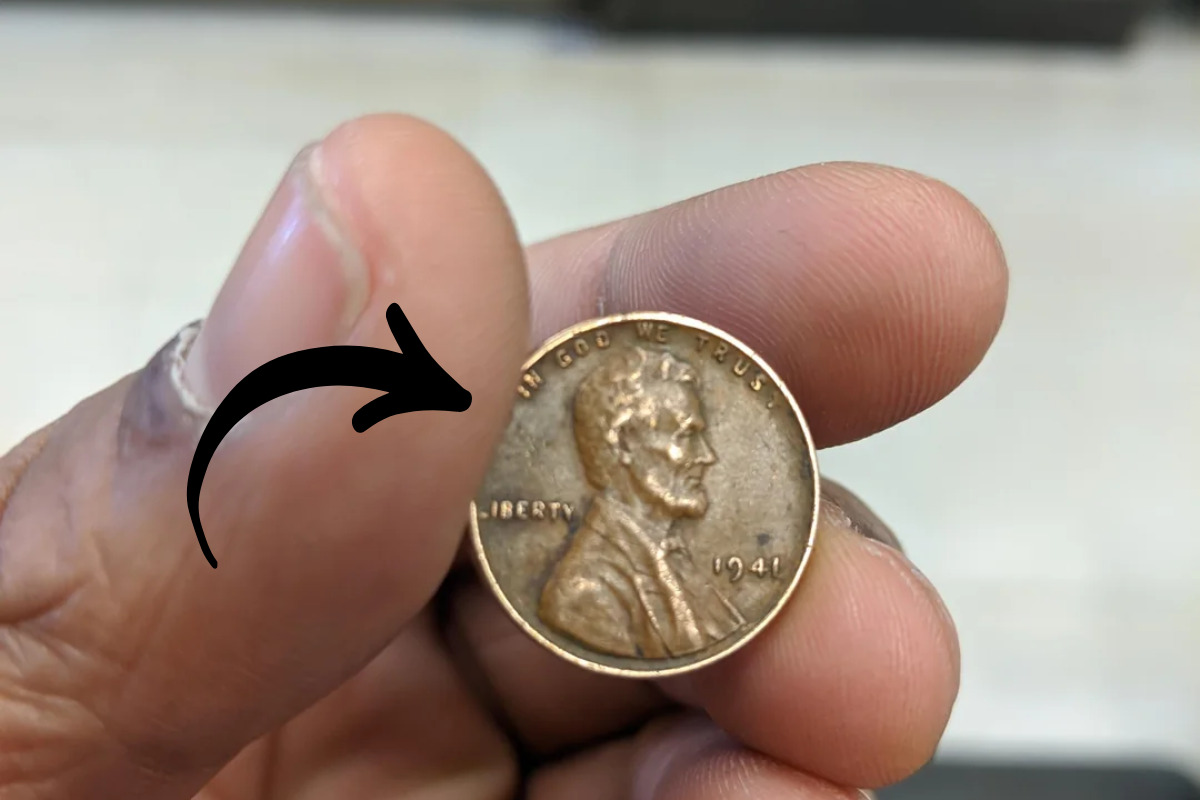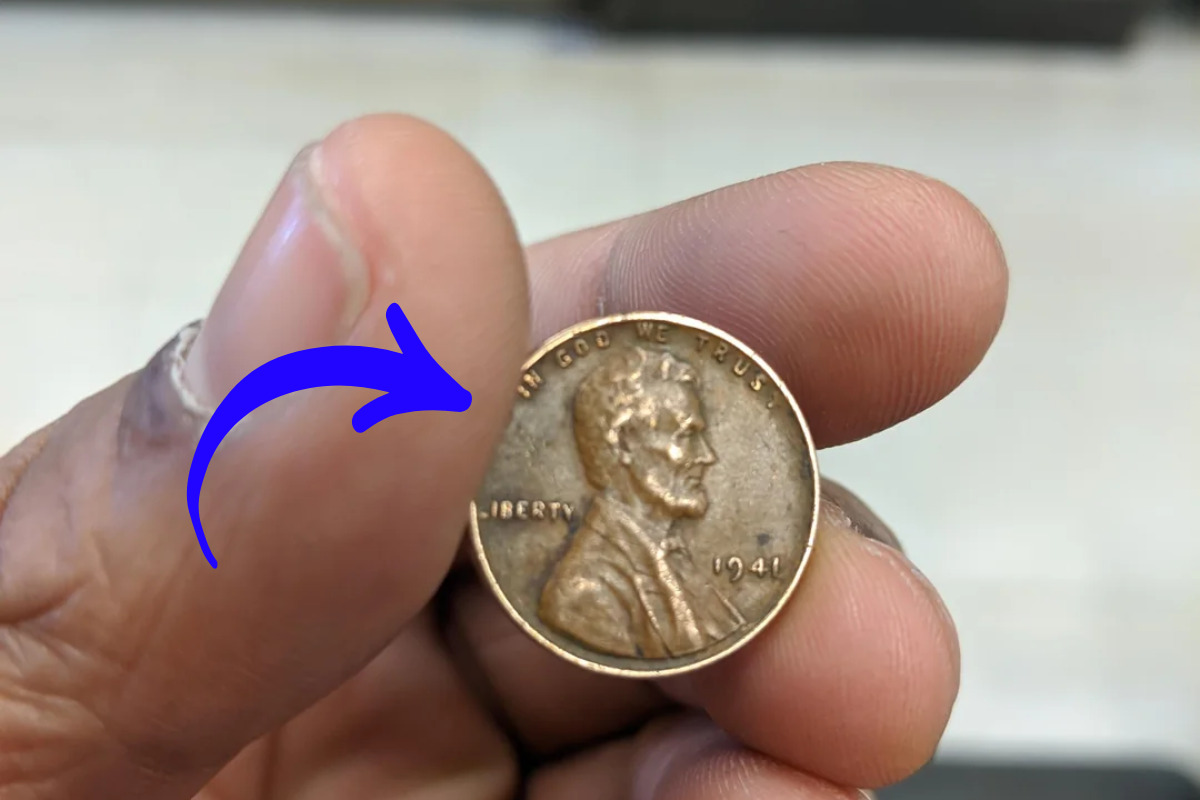Hundreds of convenience stores across Texas are selling untested and highly addictive drugs disguised as dietary supplements, and law enforcement is struggling to keep up. One such product, 7-Hydro, is being sold over the counter despite containing 7-Hydroxymitragynine, a powerful compound that interacts with opioid receptors in the brain. Experts warn that synthetic Kratom derivatives like this could lead to life-threatening addictions, yet state authorities have not taken significant action to regulate or ban them.
7-Hydro: The Opioid-Like Drug Sold as a Supplement
During a visit to a Refuel gas station in Texas, a package of 7-Hydro was spotted at the checkout counter. The label, from a company called Real Botanicals, markets it as “#1 Kratom, Pure and Potent.” While the cashier checked the buyer’s ID to verify they were over 18, they did not issue any warnings about the opioid-like effects of the active ingredient.
According to lab tests conducted by the Greater Kratom Coalition, selling 7-Hydro could be illegal due to its high concentration of 7-Hydroxymitragynine. Despite this, enforcement of Kratom-related laws in Texas remains weak, leaving dangerous products available for public consumption.
Emails and calls to Refuel and Real Botanicals seeking clarification about the product have gone unanswered. Similarly, the Texas Attorney General’s office has not responded to inquiries about enforcing existing laws regulating Kratom derivatives.
The Rise of Synthetic Kratom: A Dangerous Trend
Kratom, a tree native to Southeast Asia, has been used for centuries as a natural remedy for pain relief, depression, and opioid withdrawal. In small doses, it acts as a stimulant, while in higher doses, it produces sedative effects similar to opioids.
The primary active ingredient in Kratom is mitragynine, which the body metabolizes into 7-Hydroxymitragynine (7-OH), a significantly more potent compound. While traditional Kratom use carries relatively mild risks such as nausea and dizziness, synthetic versions of 7-OH can be highly addictive and dangerous.
Kratom is banned in six U.S. states, Washington, D.C., and several countries due to concerns over safety and addiction. The Mayo Clinic has also concluded that Kratom is unsafe and ineffective.
Despite these warnings, companies in the U.S. have begun synthesizing and concentrating the active compounds in Kratom into powerful pills that mimic opioids, such as 7-Hydro and 7-OHMhz.
Why Synthetic Kratom Is More Dangerous Than Natural Kratom
Experts argue that traditional Kratom use in Southeast Asia does not typically lead to severe addiction. However, the situation in the U.S. is different because some manufacturers are chemically enhancing 7-Hydroxymitragynine to create a more potent, opioid-like drug.
According to Matthew Lowe, Executive Director of the Global Kratom Coalition, natural Kratom contains less than 2% of 7-OH in its alkaloid composition. In contrast, synthetic Kratom pills can be 97% pure 7-OH, which is an unprecedented and highly dangerous concentration.
Lowe provided test results showing that popular 7-OH pills on the market far exceed the legal limit established under the Texas Kratom Consumer Protection Act. This act prohibits synthetic 7-OH and sets a 2% limit for naturally occurring 7-OH in Kratom products.
Despite these findings, state authorities, including the Texas Attorney General’s office, have not taken action to remove these illegal products from store shelves.
Real-Life Consequences: The Struggle with 7-OH Addiction
Jake Rhodes, a former opioid addict, shared his experience with 7-OH addiction in an article titled “I Can’t Believe It’s Not Heroin”. He describes how 7-OH withdrawal symptoms are just as severe as those of traditional opioids, making it extremely difficult to quit.
“We should stop selling synthetic opiates at gas stations,” Rhodes wrote, urging authorities to crack down on the unregulated sale of these dangerous pills.
Even organizations that support Kratom, such as the Global Kratom Coalition, argue that synthesizing and concentrating Kratom’s active ingredients into potent pills crosses the line from herbal supplement to dangerous pharmaceutical drug.
The Need for Government Action
Many Texans are questioning why Lt. Gov. Dan Patrick is focusing on banning THC (the active ingredient in cannabis) while failing to address the far greater threat of synthetic opioids like 7-OH.
Rather than criminalizing marijuana, lawmakers should be investigating why Attorney General Ken Paxton has not enforced existing drug laws against synthetic 7-OH products. Texas already has regulations against high-concentration Kratom derivatives, but these laws are being ignored.
If left unchecked, 7-Hydro and similar products could lead to widespread addiction, overdoses, and devastating public health consequences.
Texas is facing a serious drug crisis, and convenience stores are selling dangerous, synthetic opioids disguised as dietary supplements. While Kratom itself has long been used as a traditional herbal remedy, synthetic versions like 7-Hydro have turned it into a highly addictive and potentially deadly drug.
Lawmakers and law enforcement agencies must act immediately to regulate and remove these dangerous pills from stores before more people fall victim to addiction. The focus should not be on banning marijuana but on enforcing existing laws against synthetic opioids that pose a real threat to public health.
Until then, unsuspecting Texans will continue to purchase addictive, unregulated opioid-like drugs over the counter—with no warning of the risks.
